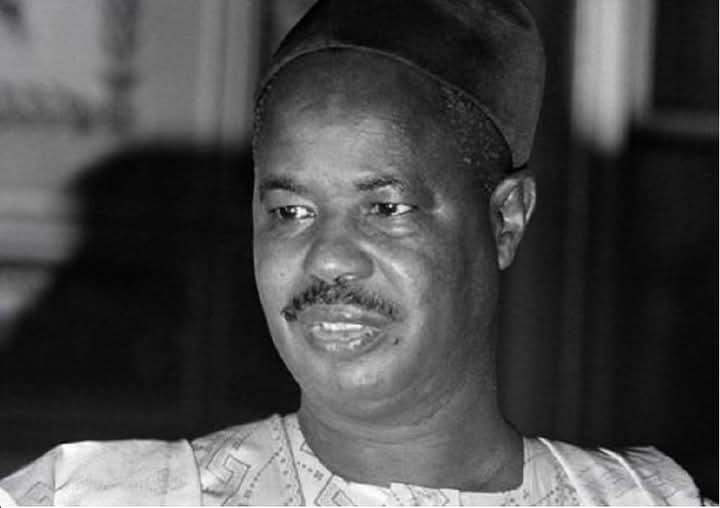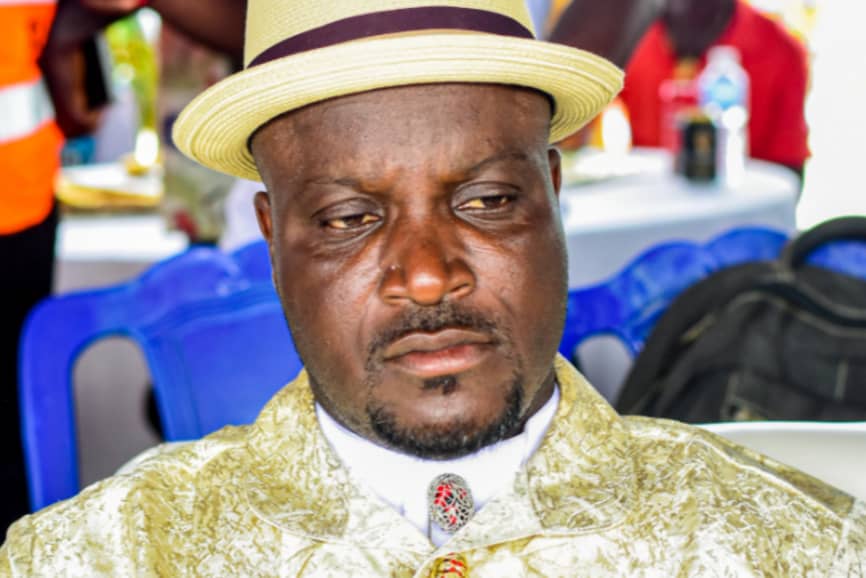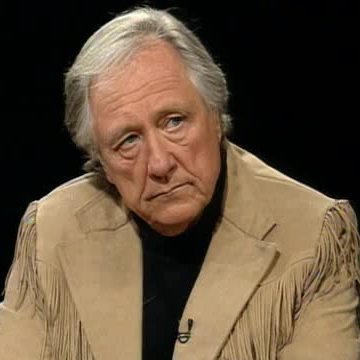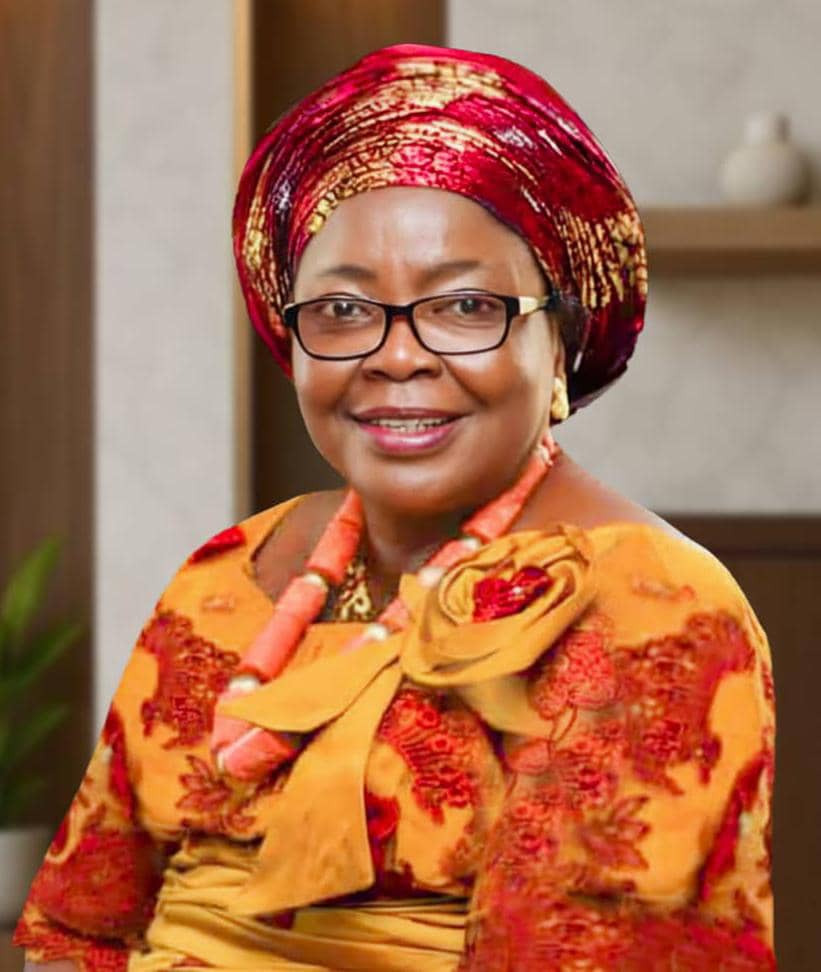AHMADOU BABATOURA AHIDJO: First President of Cameroon Who United its French and English Regions

Did you know that Ahmadou Babatoura Ahidjo, the first president of Cameroon, stepped down in 1982 in favor of Paul Biya, a Christian from the south and not a Muslim from the north, like himself?
Ahmadou Babatoura Ahidjo was a Cameroonian politician who was the first President of Cameroon, holding the office from 1960 until 1982. Ahidjo played a major role in Cameroon's independence from France as well as reuniting the French and English-speaking parts of the country. During his time in office, he established a centralized political system and a single-party state under the Cameroon National Union (CNU) in 1966, while in 1972 he abolished the federation in favor of a unitary state.
Ahidjo was born in Garoua, a major river port along the Benue River in northern Cameroun, which was at the time a French mandate territory. His mother was a Fulani of slave descent, while his father was a Fulani village chief. His mother raised him as a Muslim and sent him to Quranic school as a child.
In 1932, he began attending local government primary school. After failing his first school certification examination in 1938, Ahidjo worked for a few months in the veterinary service. He returned to school and obtained his school certification a year later. Ahidjo spent the next three years attending secondary school at the Ecole Primaire Supérieur in Yaoundé, the capital of the mandate, studying for a career in the civil service. At school, Ahidjo also played soccer and competed as a cyclist.
In 1942, Ahidjo joined the civil service as a radio operator for a postal service. As part of his job, he worked on assignments in several major cities throughout the country, such as Douala, Ngaoundéré, Bertoua, and Mokolo. According to his official biographer, Ahidjo was the first civil servant from northern Cameroun to work in the southern areas of the territory. His experiences throughout the country were, according to Harvey Glickman, professor emeritus of political science at Haverford College and scholar of African politics, responsible for fostering his sense of national identity and provided him the sagacity to handle the problems of governing a multiethnic state.
In 1946, Ahidjo entered territorial politics. From 1953 to 1957, he was a member of the Assembly of the French Union. From 28 January 1957, to 10 May 1957, Ahidjo served as President of the Legislative Assembly of Cameroon. In the same year he became Deputy Prime Minister in de facto head of state André-Marie Mbida's government. In February 1958, Ahidjo became Prime Minister at the age of thirty-four after Mbida resigned... On 12 June, with a motion from the National Assembly, Ahidjo became involved in negotiations with France in Paris. These negotiations continued through October, resulting in formal recognition of Cameroonian plans for independence.
Following the independence of the French-controlled area of Cameroon, Ahidjo's focus turned on reuniting the British-controlled area of Cameroon with its newly independent counterpart. In addressing the United Nations, Ahidjo and his supporters favored integration and reunification whereas more radical players such as the UPC preferred immediate reunification. However, both sides were seeking a plebiscite for reunification of the separated Cameroons. The UN decided on the integration and reunification plebiscite. The plebiscite resulted in northern area of the British Cameroons voting to join Nigeria and the southern area voting to reunite with the rest of Cameroon. Ahidjo worked with Premier John Foncha of the Anglophone Cameroon throughout the process of integrating the two parts of Cameroon.
In July 1961, Ahidjo attended a conference where plans to reunite the Francophone and Anglophone Cameroon were solidified. Ahidjo and Premiere John Foncha met to create a new constitution for both regions. They also both agreed not to join the commonwealth or French community. In August, Ahidjo and Foncha agreed on the final draft of the constitution and on October 1, the two regions formally joined with Ahidjo as president and Foncha serving as Vice President.
In 1972, when Cameroon hosted the Africa Cup of Nations, Ahidjo ordered the construction of two new stadiums, the Ahmadou Ahidjo stadium and the Unification Stadium. The Unification Stadium was named in celebration of the country being renamed as the United Republic of Cameroon.
Cameroon became an oil-producing country in 1977. Claiming to want to make reserves for difficult times, the authorities manage "off-budget" oil revenues in total opacity (the funds are placed in Paris, Switzerland and New York accounts). Several billion dollars are thus diverted to the benefit of oil companies and regime officials. The influence of France and its 9,000 nationals in Cameroon remains considerable.
Though many of his actions were dictatorial, Cameroon became one of the most stable in Africa. He was considered to be more conservative and less charismatic than most post-colonial African leaders, but his policies allowed Cameroon to attain comparative prosperity. Courtiers surrounding Ahidjo promoted the myth that he was "father of the nation." His presidential style was cultivated around the image of himself as the father of the nation. He carried many titles, and after he visited Mecca, Ahidjo gained the title of "El Hadj." He used radio to regularly lecture the nation and to announce the regular reassignment of government positions.
During Ahidjo's presidency, music served a role in maintaining for national unity and development. Musicians wrote songs with themes of independence, unity, and Ahidjo as the father of the nation. On official holidays, schools would compete by writing patriotic songs in Ahidjo's honor. Songs that were critical of politicians were rare. Musicians such as Medzo Me Nsom encouraged the people of Cameroon to turn out at the pols and vote for Ahidjo.
Ahidjo resigned, ostensibly for health reasons, on 4 November 1982 and was succeeded by Prime Minister Paul Biya two days later. That he stepped down in favor of Biya, a Christian from the south and not a Muslim from the north like himself, was considered surprising. Ahidjo's ultimate intentions were unclear; it is possible that he intended to return to the presidency at a later point when his health improved, and another possibility is that he intended for Maigari Bello Bouba, a fellow Muslim from the north who succeeded Biya as Prime Minister, to be his eventual successor as president, with Biya in effectively a caretaker role.
Although the Central Committee of the ruling Cameroon National Union (CNU) urged Ahidjo to remain President, he declined to do so, but he did agree to remain as the President of the CNU. However, he also arranged for Biya to become the CNU Vice-President and handle party affairs in his absence.
During the first few months of Biya's administration, there was cooperation between Biya and Ahidjo. In January 1982, Ahidjo dismissed four CNU members who opposed Biya's presidency. Additionally that month, Ahidjo and Biya both went on separate speaking tours to different parts of Cameroon in order to address the public's concerns.
Later that year, however, a major feud developed between Ahidjo and Biya. On 19 July 1983, Ahidjo went into exile in France, and Biya began removing Ahidjo's supporters from positions of power and eliminating symbols of his authority, removing official photographs of Ahidjo from the public as well as removing Ahidjo's name from the anthem of the CNU.
On 22 August, Biya announced that a plot allegedly involving Ahidjo had been uncovered. For his part, Ahidjo severely criticized Biya, alleging that Biya was abusing his power, that he lived in fear of plots against him, and that he was a threat to national unity. The two were unable to reconcile despite the efforts of several foreign leaders, and Ahidjo announced on 27 August that he was resigning as head of the CNU.
In exile, Ahidjo was sentenced to death in absentia in February 1984, along with two others, for participation in the June 1983 coup plot, although Biya commuted the sentence to life in prison. Ahidjo denied involvement in the plot. A violent but unsuccessful coup attempt in April 1984 was also widely believed to have been orchestrated by Ahidjo.
In his remaining years, Ahidjo divided his time between France and Senegal. He died of a heart attack in Dakar on 30 November 1989 and was buried there. He was officially rehabilitated by a law in December 1991. Biya said on 30 October 2007 that the matter of returning Ahidjo's remains to Cameroon was "a family affair". An agreement on returning Ahidjo's remains was reached in June 2009, and it was expected that they would be returned in 2010.
SOURCE: Wikipedia
#penglobalbrandpersonality #Ahidjo



